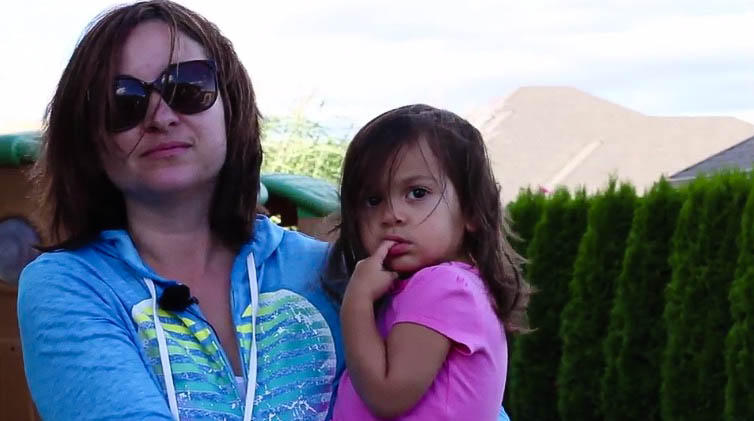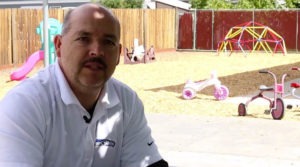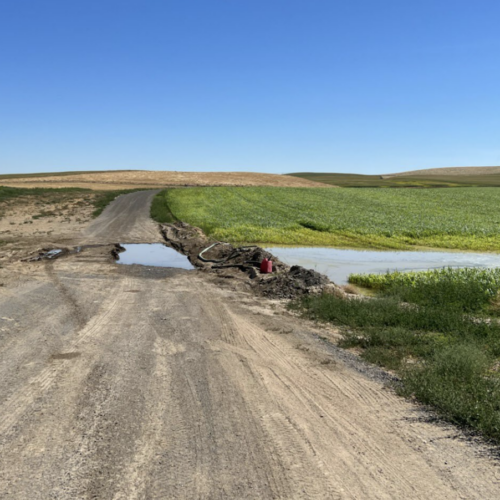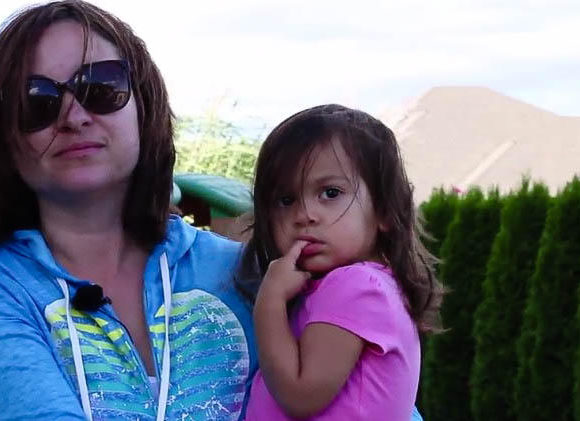
Pesticides Stick Around When Orchards Make Way For Yards And Playgrounds
Listen
Lead and arsenic used decades ago in pesticides are still lingering in the topsoil of Pacific Northwest apple country. That poses a health risk for children who come in close contact with dirt — in the backyards and playgrounds developed from former orchards.
It was a hot summer afternoon in Yakima when we ran into Jennifer Garcia.
She was in her front yard while her kids Noah and Hannah were playing in the shade with friends.
“We set up a little garden for the kids out here for fun,” Garica says. “We have our pumpkins, and tomatoes, cucumbers.”
It turns out those vegetables are growing in soil that’s contaminated by arsenic. It’s left over from pesticides sprayed before the 1950s on this same piece of land, when it was an orchard.
“So no eating dirt back here, guys,” Garcia says.
For decades, the Washington Department of Ecology has known about this problem on old orchard lands.
Especially in places around Yakima and Wenatchee, the two biggest cities in Washington’s apple country.
The state has cleaned up 26 contaminated schools around here. That was recommended by a task force the state set up to tackle the soil pollution problem.
And that same task force recommended that the government should clean up other places kids play — places like daycare centers and homes. But it didn’t.
So we decided to talk to Valerie Bound. She oversees Central Washington’s toxics cleanup program for the Department of Ecology.
She says Ecology has run out of money for cleaning up old orchard sites.
Bound told us she wants her department to start a program that teaches people how to avoid exposure to leftover pesticides in the soil.
Now it’s the little kids that the state task force had in mind when it recommended cleaning up old orchard sites.
That’s because when kids are exposed to lead, it can lower their IQs and cause behavioral problems.
And arsenic can cause heart disease and cancer later in life.
We wanted to know if people who take care of small kids were worried about old pesticides in the soil.

Jose Luis Mendoza operates several childcare centers in the Yakima area. He found out last year that its soil was contaminated with lead and arsenic. Mendoza decided to cover the contaminated soil with clean dirt and then put in a new lawn.
Photo credit: Lena Jackson
So we ended up talking to Jose Luis Mendoza. He knows all about the relationship between children and dirt.
“Little kids, under six years, where ever they are playing, they put it in their mouth,” Mendoza says. “They are exploring.”
Mendoza operates a day care center in Yakima. He found out last year that its soil was contaminated with lead and arsenic. Mendoza decided to cover the contaminated soil with clean dirt and then put in a new lawn.
After he was done, Mendoza wanted to be sure the cleanup actually worked.
So we asked Jeff Newschwander to come with us to Mendoza’s child care center. Newschwander helps test soil and direct school cleanups for the Washington Department of Ecology.
His testing kit included a metal pole that he punched into the ground to get a soil sample from way down deep.
Then he used a machine to analyze the dirt. It still had arsenic and lead from old pesticides. Newschwander sampled the new dirt Mendoza had layered on top. It tested clean.
“You’ve done exactly what we’d want you to do,” Newschwander says.

Children play at Rainbow Kidz daycare center in Yakima. The daycare’s owner, Jose Luis Mendoza, wanted to make sure his soil was safe for children. “Little kids, under six years, where ever they are playing, they put it in their mouth.
Photo credit: Lena Jackson
But it’s not only daycares at risk. We wondered if people were living with contaminated yards that they didn’t know about.
So we went door-to-door in neighborhoods we knew probably were built over old orchards. And we asked to take soil samples so they could be tested for lead and arsenic.
That’s how we ended up testing the soil around Jennifer Garcia’s house. She thinks the state should do more about contaminated yards like hers.
“If there was concern enough that they’re working on public schools,” Garcia says. “Well, then I’d think you’d spend just as much time — your little ones, especially, at home.”
There are things you can do if you’re worried about this kind of soil contamination at home.
Wash your hands after gardening or playing outdoors. Take your shoes off before you go inside. And thoroughly wash your root vegetables.
Copyright 2015 EarthFix
Related Stories:

Kennewick finds ‘forever chemicals’ in its drinking water for the second spring in a row
For the second spring in a row, Kennewick has found “forever chemicals” in its drinking water that are above Washington state’s standards.

Contaminated wells near Yakima Training Center getting filter fix from the Army
U.S. Army Soldiers with the Washington National Guard fire an M777 towed 155 mm howitzer at a direct fire range during annual training at the Yakima Training Center. (Credit: Staff

Controversial mega-dairy and farm under fresh scrutiny by Oregon officials
This photo from a Oregon Department of Agriculture report shows water runoff on a field. Runoff events, along with fertilizer leaks, have incurred violations for Easterday Dairy. (Courtesy: Oregon Department
















